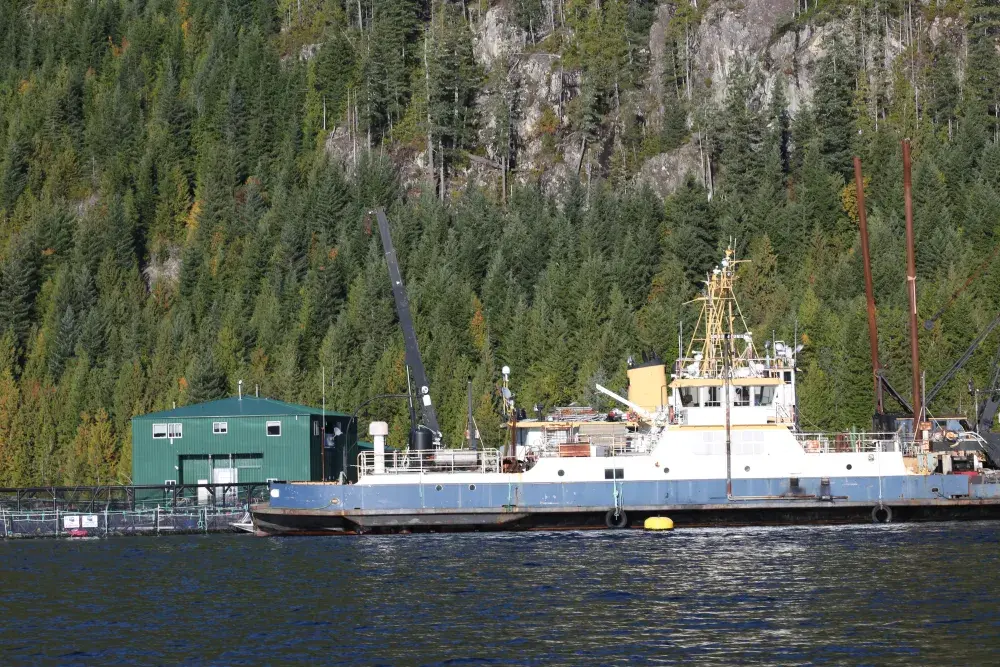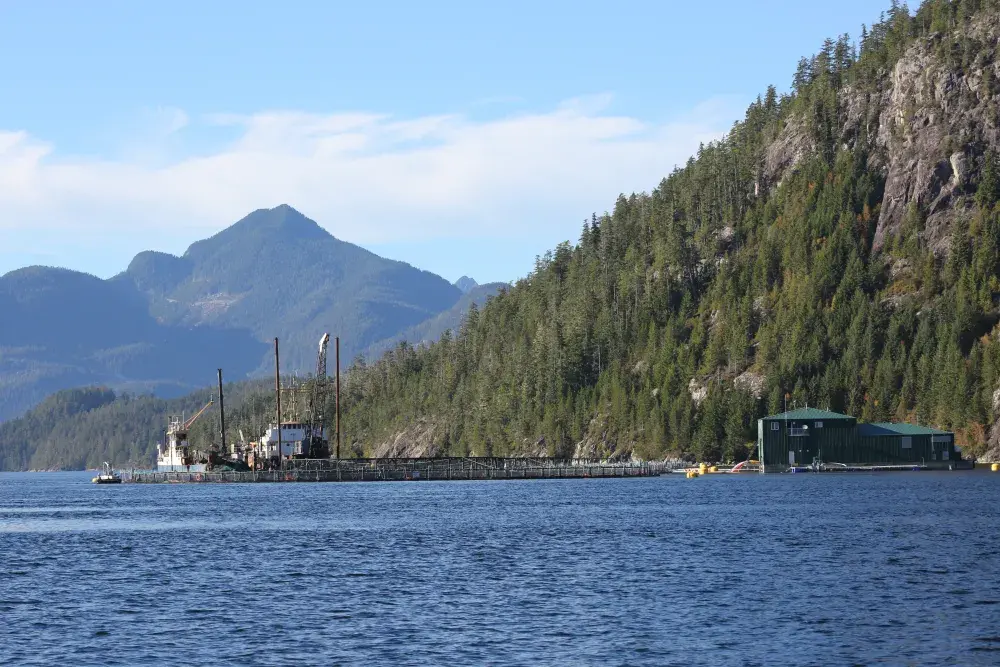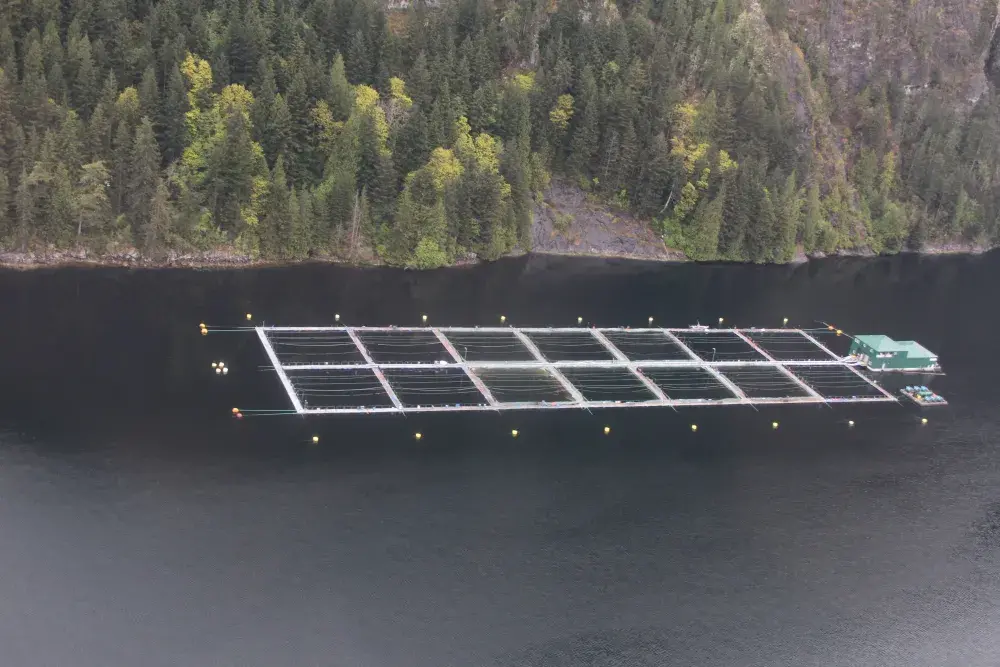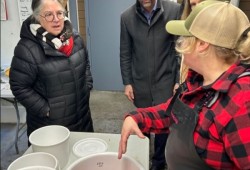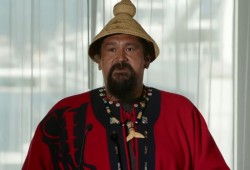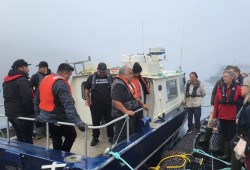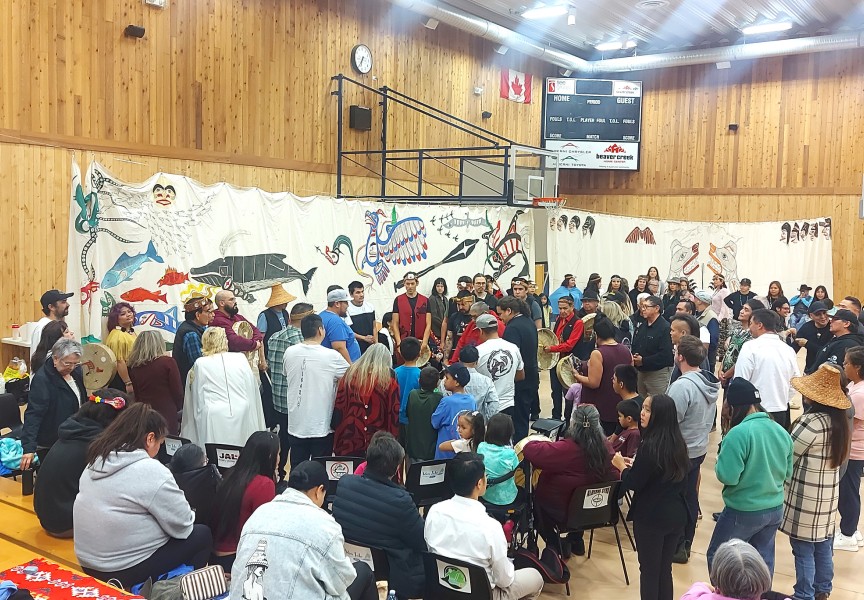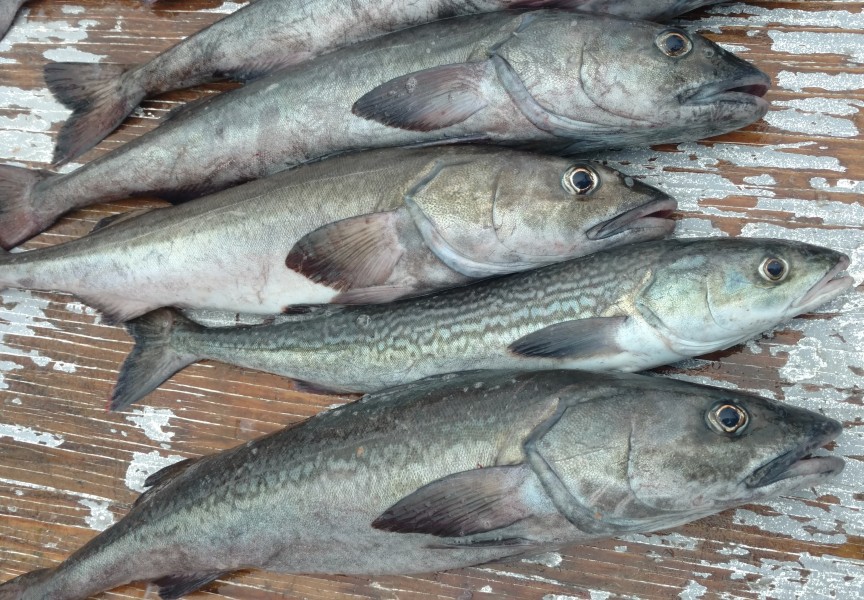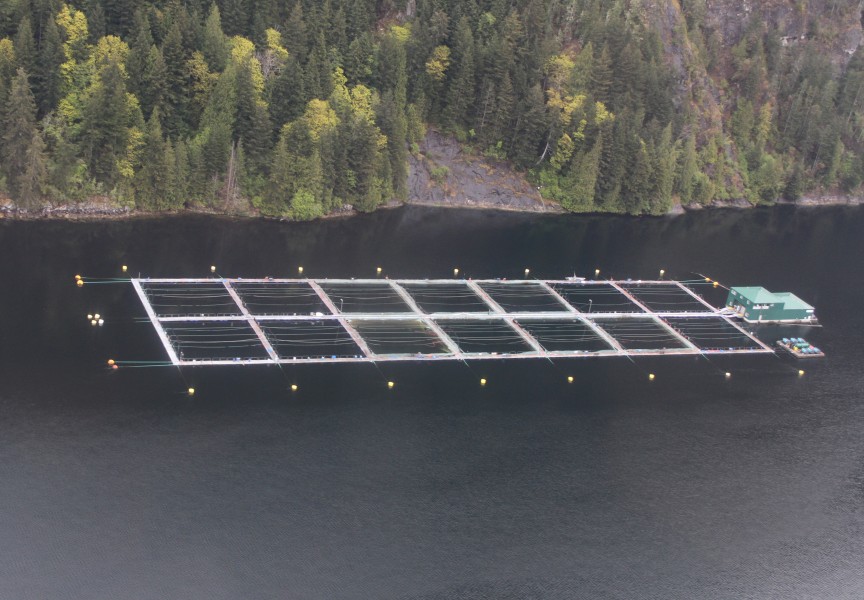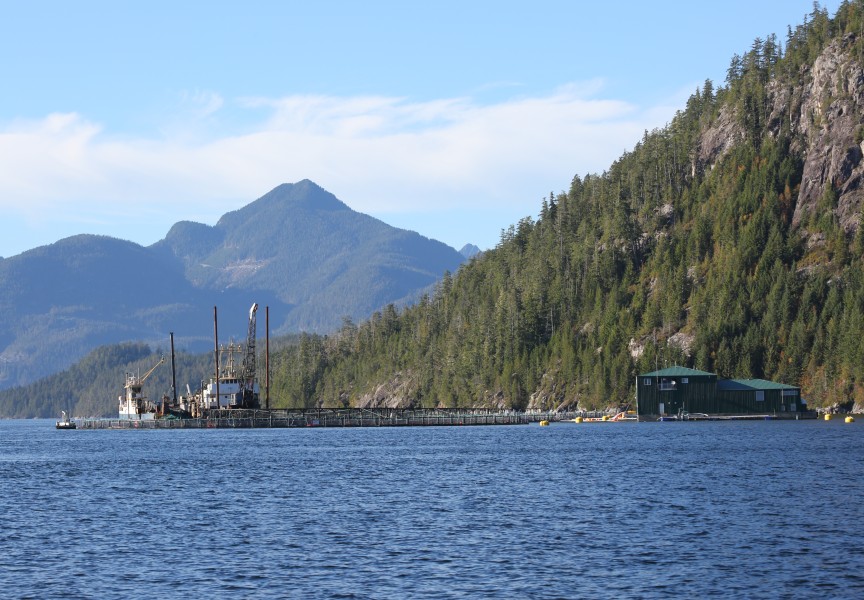B.C.’s fish farms now have five years to get open net-pens out of the water – a federal directive that has evoked opposing reactions from coastal First Nations.
Since 2019 a deadline has loomed over the industry, when Prime Minister Justin Trudeau gave a mandate to have a plan by 2025 to transition away from the open-net pens that have long been the standard for finfish aquaculture. On June 19 it finally became clear where that plan will lead, as Fisheries and Oceans Canada announced that all open net pens will be banned in British Columbia waters as of June 30, 2029.
For years opponents to finfish farming have feared that the close proximity in net pens allow sea lice and other pathogens to propagate, spreading to wild salmon as they migrate past the sites. Fisheries and Oceans Canada said the decision was made to protect wild stocks “that face unprecedented threats to their survival”.
“The government is firmly committed to taking concrete steps to protect wild salmon,” stated Canada’s Minister of Fisheries Diane Lebouthillier.
There are currently 85 active finfish licences on the B.C. coast, most of which operate in Nuu-chah-nulth territory from Barkley Sound in the south up to Kyuquot. Sixty-six of B.C.’s sites are seeking to have their licences renewed on June 30, at which time DFO will grant another five years for these farms until the ban takes effect in 2029. These licences are being renewed with stricter conditions to manage sea lice and monitor any interactions with marine mammals, according to DFO.
This spring the First Nation Wild Salmon Alliance published a list of over 120 nations, comprising most Indigenous communities in B.C., that want net pens out of the ocean. From Nuu-chah-nulth territory this list includes the Ditidaht, Tseshaht and Uchucklesaht First Nations.
Following the government’s announcement the Hesquiaht First Nation added its voice to those opposed to the industry, saying that an open net-pen ban in 2029 isn’t soon enough.
“The announcement today is a testament to the harsh reality that government continues to be willing to sell out to industry despite the horrific impacts it is having on our environment and precious waters; the same waters and resources that have sustained us since time immemorial,” stated Hesquiaht Chief Councillor Mariah Charleson in a press release. “Five more years of pollution in our precious waters is not what I was expecting from today’s announcement.”
But First Nations with a stake in the industry aren’t pleased with the announcement either. As the news spread the Coalition of First Nations for Finfish Stewardship held a press conference in Vancouver on June 19, stressing that the 2029 ban is coming from activists and politicians that are out of touch with the ties fish farms have to coastal communities.
“Vancouver is not British Columbia,” said the coalition’s spokesperson Dallas Smith, who is also acting chief for the Tlowitsis Nation. “There’s 5,000 people that depend on employment from this sector right now…500 of them are directly employed in remote First Nations communities.”
“Our rights have been dismissed in favour of a privileged, Liberal, urban riding political narrative,” said Ahousaht Tyee Ha’wilth Hasheukumiss, Richard George. “There has not been adequate consultation with my nation. I requested many meetings and sent many letters, including to the Prime Minister, asking to be heard on this issue.”
For over a decade Ahousaht has had a protocol agreement with Cermaq for the operation of Atlantic salmon farms in its territorial waters. Valued by the nation at $6 million annually, this agreement brings specific environmental standards for the sites, employment opportunities, educational supports, transportation and other benefits. Over 20 Ahousaht members work at Cermaq locations in Clayoquot Sound.
“The potential impacts to my community and citizens’ well being is severe,” said Hasheukumiss of how the net pen ban will affect Ahousaht’s on-reserve community. “Twelve hundred people live there; there’s 200 jobs in my nation.”
Also present at the coalition’s press conference was Simon John, chief councillor of the Ehattesaht/Chinehkint First Nation. He expressed that the federal decision was another example of the government dismissively putting First Nations people “in a box”.
“My heart is hurt a little bit more today because of that,” said John. “Living my life to the greatest extent that I have and utilizing all the resources that have value in my territory, the bearing on it is that the government still owns it, they own it all.”
In recent years British Columbia has become an outlier on the Pacific northwest as the only jurisdiction to allow industrial-scale fish farming. In 2022 Washington turned its back on the industry with an executive order to ban commercial salmon farms in the state’s waters.
But in it’s June 19 announcement the federal government didn’t close the door on fish farming, noting that the 2029 timeline will promote “more sustainable aquaculture practices”. A draft of the government’s transition plan away from open net pens is expected by the end of July, which will identify “economic supports for the use of innovative and clean aquaculture technology”. After existing licences are renewed for another five years, DFO will only consider land-based or aquatic closed-containment farms, which could operate for a nine-year term.
It remains to be seen what will be viable, as net pens have long been the industry standard on the B.C. coast. Cermaq has trialed semi-closed containment pens on Vancouver Island’s west coast that block all interaction with wild salmon by using an enormous bag composed of a synthetic, non-permeable material. Oxygen and water are pumped into the semi-closed site from a depth of 23 metres, an additional measure that requires a considerable amount of power at remote locations.
Due to these demands, open-net pens have remained the practical standard for the industry. Brian Kingzett, executive director of the BC Salmon Farmers Association, said the government fails to understand how difficult a transition to other approaches would be.
“This focus on unproven technology jeopardizes the sector’s ability to fulfill agreements with rights-holder First Nations and will cause further harm to our communities,” he stated in a release.
“We do not have the land or the supporting power infrastructure to do this,” said Hasheukumiss of the possibility of transitioning from open-net pens. “This is not even logistically possible.”
“Only our collective Ha’wiih have right to decide the title and rights in our Ahousaht territory,” he added. “We will be allowing for a more realistic approach of a 10-year transition plan in my Ḥahuułi.”

